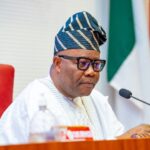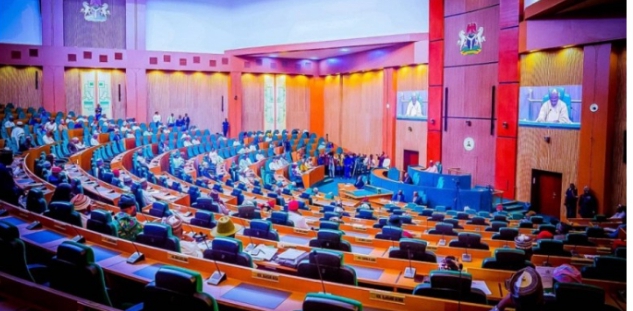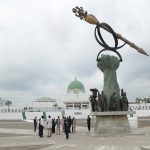The Nigerian House of Representatives has passed for second reading a bill aimed at barring individuals over the age of 60 from contesting for the positions of President and Governor.
Should the bill successfully pass through further legislative procedures and be enacted into law, prominent figures such as President Bola Tinubu, former Vice President Atiku Abubakar, and Peter Obi, the Labour Party’s 2023 presidential candidate, would be disqualified from the 2027 presidential race, as they all exceed the 60-year age limit.
The bill, titled “A Bill for an Act to amend the Constitution of the Federal Republic of Nigeria, 1999, to revise the eligibility criteria for individuals seeking election as President, Vice President, Governors, and Deputy Governors in Nigeria,” was introduced by Ikenga Ugochinyere, the representative for the Federal Constituency of Imo State.
The bill was one of the 31 proposed legislations which scaled second reading during Thursday’s plenary session.
The bill provides that “A person shall be qualified for election to the office of the President if he has been educated up to at least university level and has earned a Bachelor’s degree in his chosen field of study.
“Section 131 of the Principal Act is amended by inserting a paragraph which reads, “That he is not more than 60 years at the time of vying for the Office of President.
“Section 177(d) of the principal Act is amended by altering the educational requirement that qualifies persons to be elected as governor as follows:
“A person shall be qualified for election to the Office of the President if he has been educated up to at least university level and has earned a Bachelor’s degree in his chosen field of study.
“That he is not more than 60 years old at the time of vying for the office of Governor.
A bill to provide statutory backing for the establishment of Alvan Ikoku Federal University of Education in Imo State also passed second reading.
The bill sponsored by Speaker Tajudeen Abass Mr Ugochinyere aims to elevate the institution’s status, granting it federal recognition and funding support.
The House also passed for second reading a Bill for an Act to alter the Constitution to provide for mandatory inclusion of youths and persons living with disabilities in political appointments.
A bill introduced by the Imo lawmaker is gaining traction as it seeks to enhance inclusivity and representation in governance.
In a similar vein, another bill aimed at moving trade and commerce to the concurrent legislative list, designed to boost interstate commerce, also passed its second reading in plenary.
Once enacted into law, this proposed legislation would allow both the federal and state governments to regulate trade, ultimately fostering economic growth and strengthening commercial ties between them.
Additionally, the Federal University of Education, Zaria (Establishment) Bill, 2025, co-sponsored by Speaker Abbas and Plateau lawmaker Yusuf Gagdi, was reviewed and approved during the session.
This bill aims to establish a specialised university focused on teacher education in Zaria. Other education-related bills include the establishment of Yusuf Maitama Sule Federal University of Education in Kano and the University of Nigerian Languages in Aba, among others.
Also passed for second reading is the Reserved Seats for Women in National and State Assemblies Bill, 2025, sponsored by Rep. Kafilat Ogbara.
The bill aims to promote gender inclusivity by reserving specific legislative seats for women.
The Inclusion of Youths and Persons with Disabilities in Political Appointments Bill, 2025 sponsored byUgochinyere, also passed the second reading.
The bill aims to ensure greater participation of marginalised groups in government.
Additionally, judicial reforms are on the agenda with bills such as the Timelines for Justice Administration Bill, 2025, sponsored by Benjamin Kalu, which seeks to enhance the justice delivery system in the country.
Another proposal, “The Increase in Number of Supreme Court & Court of Appeal Justices Bill, sponsored by Bello Kaoje, calls for an expansion in the number of justices to improve the efficiency of the judiciary.
The House also deliberated on bills related to the creation of new states, with the Creation of Wan State (North Central) Bill, 2025 and the Creation of Gobir State (North West) Bill, 2025 also passing for second reading.












